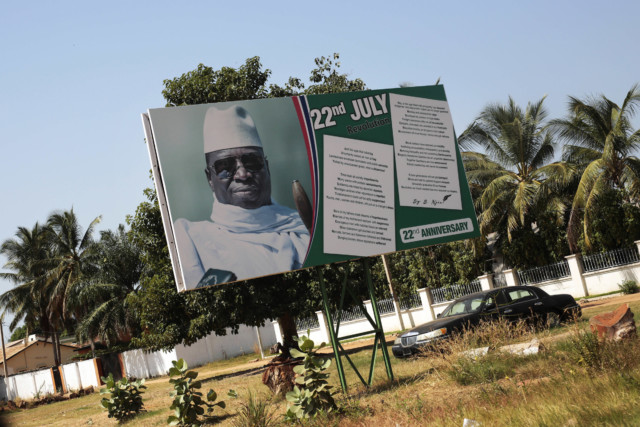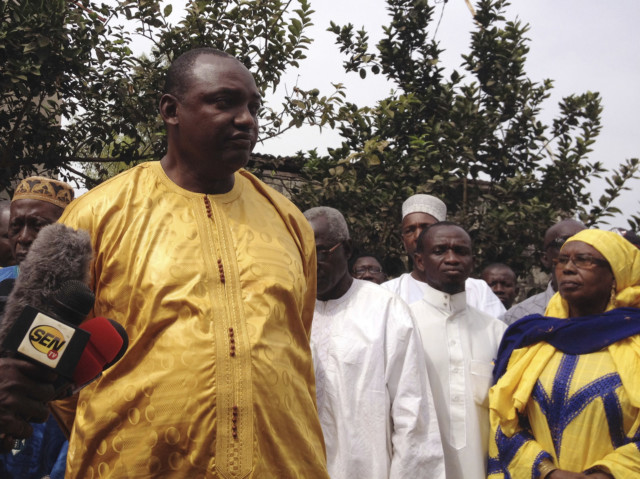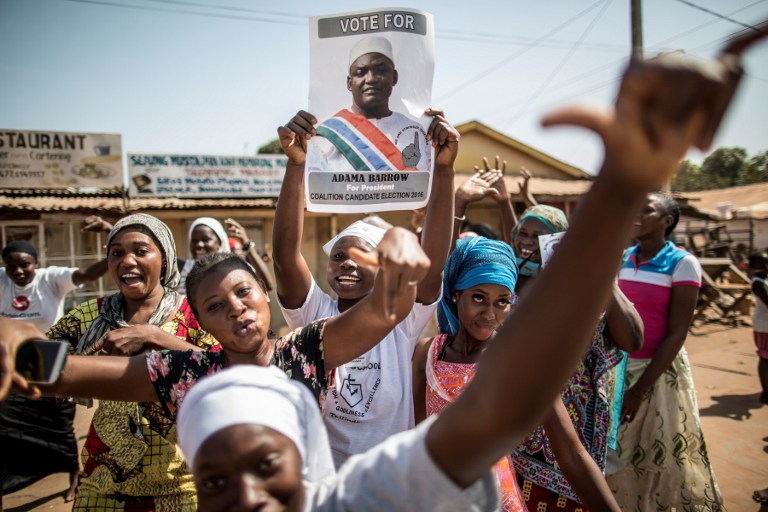Gambia’s president-elect said Saturday that the outgoing leader, who rejects his own defeat, has no constitutional authority to call for another election, and he called on President Yahya Jammeh to help with a smooth transition in the interest of the tiny West African country.
Jammeh’s surprise reversal late Friday was certain to spark outrage among the tens of thousands who took to the streets after Adama Barrow was announced the president-elect in the Dec. 1 vote, shouting “Freedom!”
The United States and others quickly rejected Jammeh’s new stance, and the African Union on Saturday called for security forces to remain neutral. Soldiers were in the streets of the capital, Banjul, as Gambians closed down shops in fear of unrest.
Barrow said the Independent Electoral Commission is the only competent authority to declare a winner.
“It was already done so, and I am the president-elect,” Barrow said. “President Jammeh is the outgoing president. He is to hand over executive powers to me when his term is expires in January.”
Jammeh, whose 22-year rule has been marked by repeated accusations of human rights abuses, late Friday announced that he rejects the results of the presidential election, a week after he jovially conceded to Barrow. “Allah is telling me my time is up,” he said then.
Jammeh now says investigations have revealed a number of voting irregularities.
The head of the electoral commission, Alieu Momar Njie, would not comment to The Associated Press on whether Jammeh had filed a formal challenge to the vote.
On Saturday, Barrow recalled Jammeh’s telephone call Dec. 2, broadcast on state television, to concede defeat.
“The outgoing president told me in a simple, clear language that the results were regarded of the people and God,” Barrow said after meeting with the coalition government at his home.
Barrow, a 51 year-old real estate mogul and former security guard, called on Jammeh to join his side for a smooth transition.
“Let him know that leaders come and go. Sooner or later, I must also go,” Barrow said. “I urge him to change his current position and accept the verdict of the people in good faith for the sake of the Gambia, our homeland, whose people deserve peace and freedom and prosperity.”
Jammeh’s reversal drew swift criticism from the international community. African Union Chairwoman Nkosazana Dlamini-Zuma on Saturday called his rejection of the election results “null and void.” The United States government called it an attempt to remain in power illegitimately.
The foreign minister in neighboring Senegal, which surounds the small country of 1.9 million except for its coastline, called for an emergency meeting of the U.N. Security Council to address the situation.
Jammeh’s protest is “an extremely dangerous move that risks leading to instability and possible repression,” Sabrina Mahtani, Amnesty International’s West Africa researcher, said in a statement.
Jammeh, who seized power in a bloodless 1994 military coup, has long been accused of overseeing a government that imprisons, tortures and sometimes kill its opponents, according to human rights groups.

A poster showing longtime Gambian president President Yahya Jammeh is seen along the street in Serrekunda, Gambia, Friday Dec. 2, 2016. (AP Photo/Jerome Delay)
Mai Ahmad Fatty of the opposition Gambia Moral Congress, one of eight parties that backed Barrow, said the coalition has the will of the people on its side.
“Remain calm. We are working round the clock to restore sanity. We have the full support of our people. The world is with us,” Fatty said. “Gambia cannot afford instability.”
Story by The Associated Press.
 CGTN America
CGTN America
 Gambia President-elect Adama Barrow, left, speaks to members of the media in Banjul, Gambia, Saturday, Dec. 10, 2016. (AP Photo/Dawda Bayo)
Gambia President-elect Adama Barrow, left, speaks to members of the media in Banjul, Gambia, Saturday, Dec. 10, 2016. (AP Photo/Dawda Bayo)

